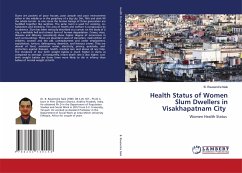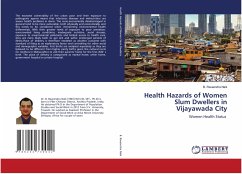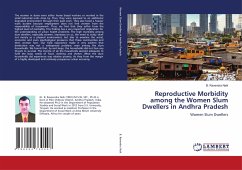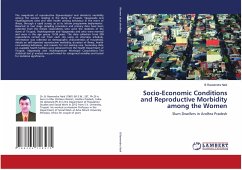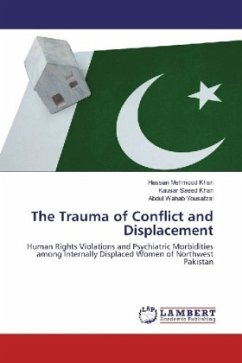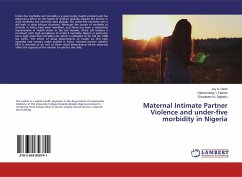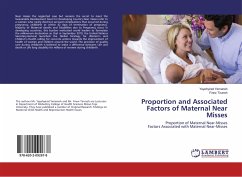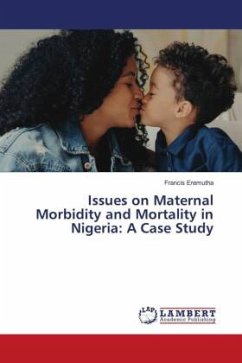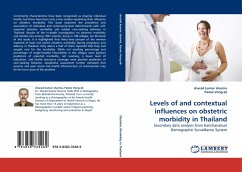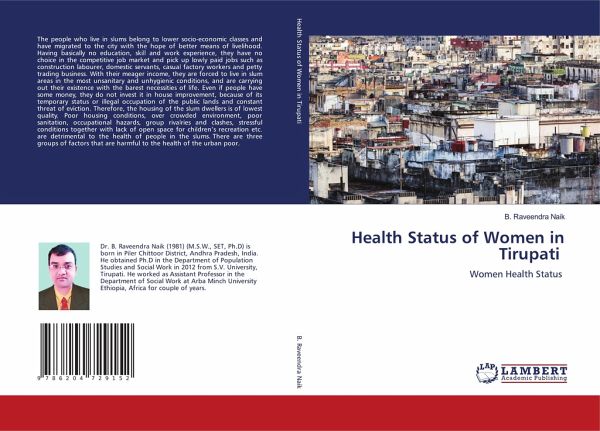
Health Status of Women in Tirupati
Women Health Status
Versandkostenfrei!
Versandfertig in 6-10 Tagen
45,99 €
inkl. MwSt.

PAYBACK Punkte
23 °P sammeln!
The people who live in slums belong to lower socio-economic classes and have migrated to the city with the hope of better means of livelihood. Having basically no education, skill and work experience, they have no choice in the competitive job market and pick up lowly paid jobs such as construction labourer, domestic servants, casual factory workers and petty trading business. With their meager income, they are forced to live in slum areas in the most unsanitary and unhygienic conditions, and are carrying out their existence with the barest necessities of life. Even if people have some money, ...
The people who live in slums belong to lower socio-economic classes and have migrated to the city with the hope of better means of livelihood. Having basically no education, skill and work experience, they have no choice in the competitive job market and pick up lowly paid jobs such as construction labourer, domestic servants, casual factory workers and petty trading business. With their meager income, they are forced to live in slum areas in the most unsanitary and unhygienic conditions, and are carrying out their existence with the barest necessities of life. Even if people have some money, they do not invest it in house improvement, because of its temporary status or illegal occupation of the public lands and constant threat of eviction. Therefore, the housing of the slum dwellers is of lowest quality. Poor housing conditions, over crowded environment, poor sanitation, occupational hazards, group rivalries and clashes, stressful conditions together with lack of open space for children's recreation etc. are detrimental to the health of people in the slums. There are three groups of factors that are harmful to the health of the urban poor.



